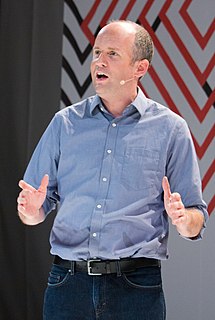A Quote by Robert Heilbroner
The change began with John Stuart Mill and the Utopians . When Mill pointed out that economics had no ultimate solution to the problem of distribution , that society might do with the fruits of its toil as it saw fit, he introduced into the mechanical calculus of the market a conflicting calculus of moral judgment.
Related Quotes
The great philosophers of the past who wrote so beautifully - Rousseau, John Stuart Mill - had to write beautifully because they had to sell their work to journals. They had to sell books to the general public because they could not hold positions in universities. Mill was an atheist, and, therefore, could not hold a position in a university.
John Stuart Mill believed that the only acceptable reason for government to limit a person's liberty was to prevent him from causing unacceptable harm to others. Mill was not a libertarian, but many libertarians are quick to cite this principle when arguing against a regulation that they oppose. And I believe most thoughtful libertarians are prepared to embrace something fairly close to Mill's harm principle. But accepting that principle implies accepting many of the institutions of the modern welfare state that libertarians have vigorously opposed in the past, such as safety regulation.
PLEASURE and pain are undoubtedly the ultimate objects of the calculus of economics. To satisfy our wants to the utmost with the least effort - to procure the greatest amount of what is desirable at the expense of the least that is undesirable - in other words, to maximize pleasure, is the problem of economics.
Human envy is certainly not one of the sources of discontent that a free society can eliminate. It is probably one of the essential conditions for the preservation of such a society that we do not countenance envy, not sanction its demands by camouflaging it as social justice, but treat it, in the words of John Stuart Mill, as 'the most anti-social and evil of all passions.'


































